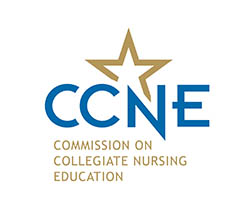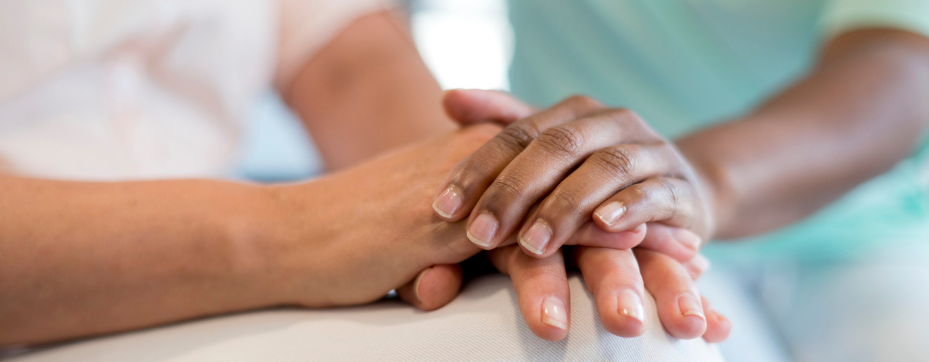
DEPARTMENT OF NURSING
BSN Second Degree Nursing Track
BSN Second Degree Track
Leverage Your Current Degree to Become a Nurse with the BSN Second Degree Nursing Track at Saint Francis University
Maybe you were on one career path, but now want to pivot to a profession in nursing. The BSN Second Degree Nursing Track offered through the Saint Francis University Department of Nursing is a great option to help you get there.
Offered: On-Campus with Clinical Components
When applying to the BSN Second Degree Nursing Track, select "On Campus"
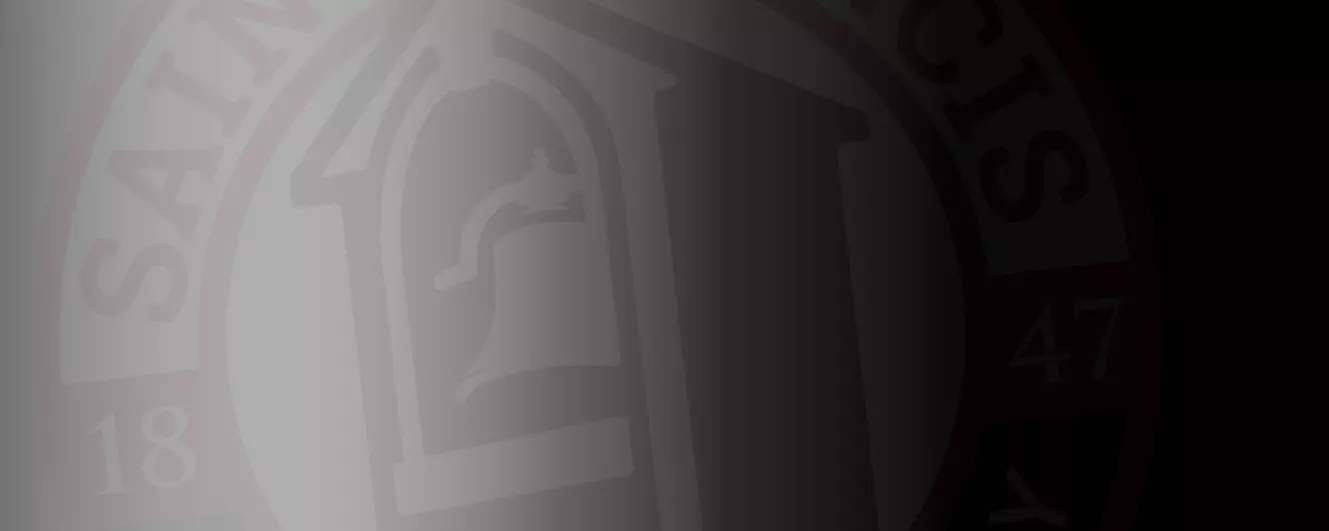
100% First-Time Pass Rate
We boast a 100% pass rate for the graduates of the BSN Second Degree Nursing Track students.

A non-nurse with a baccalaureate degree (BA/BS) can earn a BSN in a little as 18 months.

Work with simulated patients that bleed, take seizures, and even give birth; AND with real patients during clinical rotations.
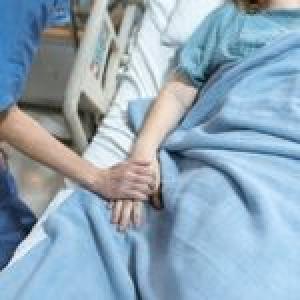
Franciscan values are embedded in the coursework, ensuring we graduate caring, ethical nurses.
The SFU LEARNING EXPERIENCE
BSN Second Degree Nursing Track the Saint Francis Way
At Saint Francis you will not be just a face in a classroom, you will be known by name. Our commitment to small clinical groups (1-8 faculty-student ratio) will enhance your learning experience.
Experiential Learning Commons
Five state-of-the-art simulation suites are being incorporated into the design that include a mock Emergency Room, Intensive Care Room, Patient Room, Maternity Room, and Exam Room. The suites have the ability to be utilized simultaneously and feature computer-controlled mannequins and two-way audio-video conferencing.
Clinical Rotations
Hands-on learning in hospital settings is a hallmark of our program and a pivotal component for graduating.

Is the BSN Second Degree Nursing Track at Saint Francis University right for you?
- Do you have a bachelor's degree in another field but desire to move into the field of nursing?
- Do you thrive on in-person learning environments and in-person simulated experiences?
- Do you want to work in a high-intensity environment that requires fast-paced critical thinking skills?
- Can you commit at least 18 months to complete the program and graduate with a BSN?
If so, our BSN Second Degree Nursing Track is a good fit for you.
CURRICULUM & COURSES
What You’ll Learn in the BSN Second Degree Nursing Track
The BSN Second Degree Nursing Track prepares students to become generalists in nursing and assist persons, families, and communities towards the goal of health throughout life. A baccalaureate education in nursing provides each student with the knowledge base for practicing professional nursing and excellent preparation for the NCLEX exam. The curriculum is based on a liberal arts foundation in the Judeo-Christian tradition and utilizes the 'AACN Essentials of Baccalaureate Education for Professional Nursing Practice' within an integrated caring curriculum.
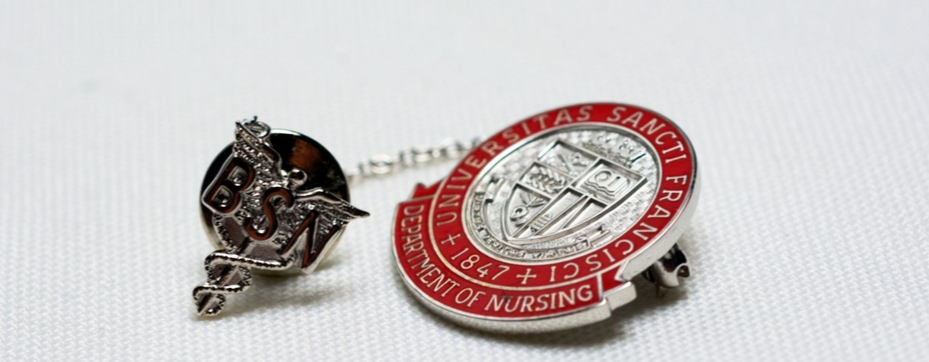
BSN Second Degree Nursing Track
The BSN Second Degree Nursing Track enables a non-nurse with a baccalaureate degree (BA/BS), the ability to earn a BSN in as little as 18-months.
Course Catalog - 25/26 | Plan of Study
Key Topics Covered
- clinical reasoning, cultural competence, patient care technologies, and interprofessional collaborative practice
- professional nursing standards aligned with the American Nurses Association Standards of Professional Performance
- strong science foundation including human anatomy, chemistry, and biology
- the "Art and Science" of nursing through robust humanity/liberal arts core
- ethics and values of a caring profession
- caring for individuals, families, groups, communities, and populations
- hands-on simulated and professional clinical experiences
- nursing leadership and management theory
Upon successful completion of the BSN Second Degree Nursing Track, you will be able to:
- Synthesize knowledge from nursing, the arts, sciences, and humanities for the development of intellectual and practical abilities, which form the foundation for nursing practice.
- Embrace the concept of Patient-Centered Care as the core purpose of nursing as a discipline.
- Examine the principles of population health for the purpose of achieving equitable outcomes and improved health status.
- Utilize the research process to acquire evidence-based practices which enhance the nurse’s collaborative role in clinical decision-making, improving health, and providing optimal care.
- Employ quality care improvement and patient safety practices to achieve desired health outcomes that are consistent with patient preferences and current professional knowledge.
- Collaborate with the interprofessional team to establish healthcare goals for individuals, communities, and populations.
- Apply knowledge of healthcare systems to effectively coordinate resources in providing safe, quality, and equitable care.
- Utilize information and communication technologies and informatics processes to promote efficient communication, and to assist patients and consumers to improve health and manage health conditions.
- Exemplify a professional nursing identity that reflects the characteristics and values of the discipline.
- Develop personal, professional and leadership attributes to promote self-awareness, personal growth, and positive opportunities.
Certification/Professional Licensure
Upon graduation from the BSN program, all students must pass the NCLEX to receive the RN license.
Admission Requirements
BSN Second Degree Nursing Track
Admission Requirements
- Bachelor’s Degree from an accredited College/University in a major other than nursing
- 3.0 Cumulative Transfer GPA
Once admitted to the BSN Second Degree Nursing Track, students must complete 60 credits of courses.
All non-nursing and nursing prerequisite courses must be completed prior to the professional phase of nursing which begins with NURS 322.
- 2.6 Cumulative GPA in the Natural Science courses is required.
- Nursing courses require at least a B- grade.
- BIOL 205, 206, and 214 courses must be taken within the last 7 years.
- BIOL 111 and CHEM 113 will be waived if BIOL 214, BIOL 205 and BIOL 206 have been completed and accepted for transfer.
Students who have been dismissed from a previous BSN program will not be admitted to the BSN Second Degree Nursing Track at Saint Francis University.
Admission Deadline
- This program has rolling admissions.
A total of 68 credits may be transferred, which includes 32 credits of non-nursing prerequisite courses:
- BIOL 111 Biology - 4 cr
- CHEM 113 Human Chemistry - 4 cr
- BIOL 214 Microbiology - 4 cr
- BIOL 205 Anatomy & Physiology I - 4 cr
- BIOL 206 Anatomy & Physiology II - 4 cr
- PSYC 101 Psychology - 3 cr
- SOC 101 Sociology - 3 cr
- MATH 107 College Algebra or higher - 3 cr
- STATS 205 Statistics - 3 cr
Students are required to satisfactorily achieve program outcomes. Therefore, consideration is given to scholastic aptitude, academic achievement, personal qualities, emotional health and minimum functional requirements/technical standards, necessary to fulfill the objectives of the program.
Progression and continuance in the Nursing Program is based upon academic performance and successful achievement of nursing prerequisites, health maintenance, and adherence to Saint Francis University policies. All policies may be found in the University catalog, Student Handbook and Department of Nursing handbook. The faculty of the Department of Nursing has the right and the responsibility for judging and evaluating the quality of the student’s achievement, both in the mastery of the theoretical content and in clinical competence.
Accreditation
The baccalaureate degree program in nursing at Saint Francis University are accredited by the Commission on Collegiate Nursing Education (http://www.ccneaccreditation.org).

Department of Nursing Faculty
Benefit from our Experienced Faculty
Our faculty teach with a philosophy of learning as a self-motivated and voluntary endeavor on the part of nursing students. Using our “curriculum of caring” as a source of inspiration, we have moved away from the traditional role of teacher to that of “facilitator of learning” to help you take on the responsibility of self-direction. We support you as you develop the best ways of learning and becoming the best nurse possible.
Nursing Program Chair: Camillle Wendekier, PhD, RN, CNE, cwendekier@francis.edu, 814-472-2843
Career Outlook in Nursing
Nurses are in high demand. Job placement is 100% for those seeking employment in the hospital setting and many nurses are receiving substantial sign-on bonuses!
Career Opportunities
The field of nursing offers a wide array of career opportunities in areas such as;
hospitals
home health
nursing care facilities
outpatient facilities
government schools
military
Salary Potential
According to the Bureau of Labor Statistics the median pay for nurses in 2024 was $93,600 per year.
FAQs
Frequently Asked Questions About the Second Degree/Accelerated BSN at SFU
-
Simulation is a very important part of the learning dimension of nursing students. The University continues to invest heavily in advanced simulation experiences. At Saint Francis, the Health Sciences Experiential Learning Commons (ELC) provides a state-of-the-art, hospital-like setting that allows students to work inter-professionally in a way that simulates the collaborative process of caring for a patient. The ELC is equipped with several new high-functioning mannequins, a clinical skills lab, and a simulated apartment for students to practice providing care to patients in the home environment.
-
Here are some of the opportunities that our graduates have taken:
- Clinical nurse on a medical-surgical unit
- Neonatal intensive care unit nurse
- Cardio-thoracic intensive care unit nurse
- Home health nurse
- Nurse practitioner
- Nursing professor
- Hospital staff development instructor
- Nurse administrator
- Labor and delivery unit nurse
- Army nurse
- Nursing home administrator
- Nursing home nurse
Simulation is a very important part of the learning dimension of nursing students. The University continues to invest heavily in advanced simulation experiences. At Saint Francis, the Health Sciences Experiential Learning Commons (ELC) provides a state-of-the-art, hospital-like setting that allows students to work inter-professionally in a way that simulates the collaborative process of caring for a patient. The ELC is equipped with several new high-functioning mannequins, a clinical skills lab, and a simulated apartment for students to practice providing care to patients in the home environment.
Here are some of the opportunities that our graduates have taken:
- Clinical nurse on a medical-surgical unit
- Neonatal intensive care unit nurse
- Cardio-thoracic intensive care unit nurse
- Home health nurse
- Nurse practitioner
- Nursing professor
- Hospital staff development instructor
- Nurse administrator
- Labor and delivery unit nurse
- Army nurse
- Nursing home administrator
- Nursing home nurse
